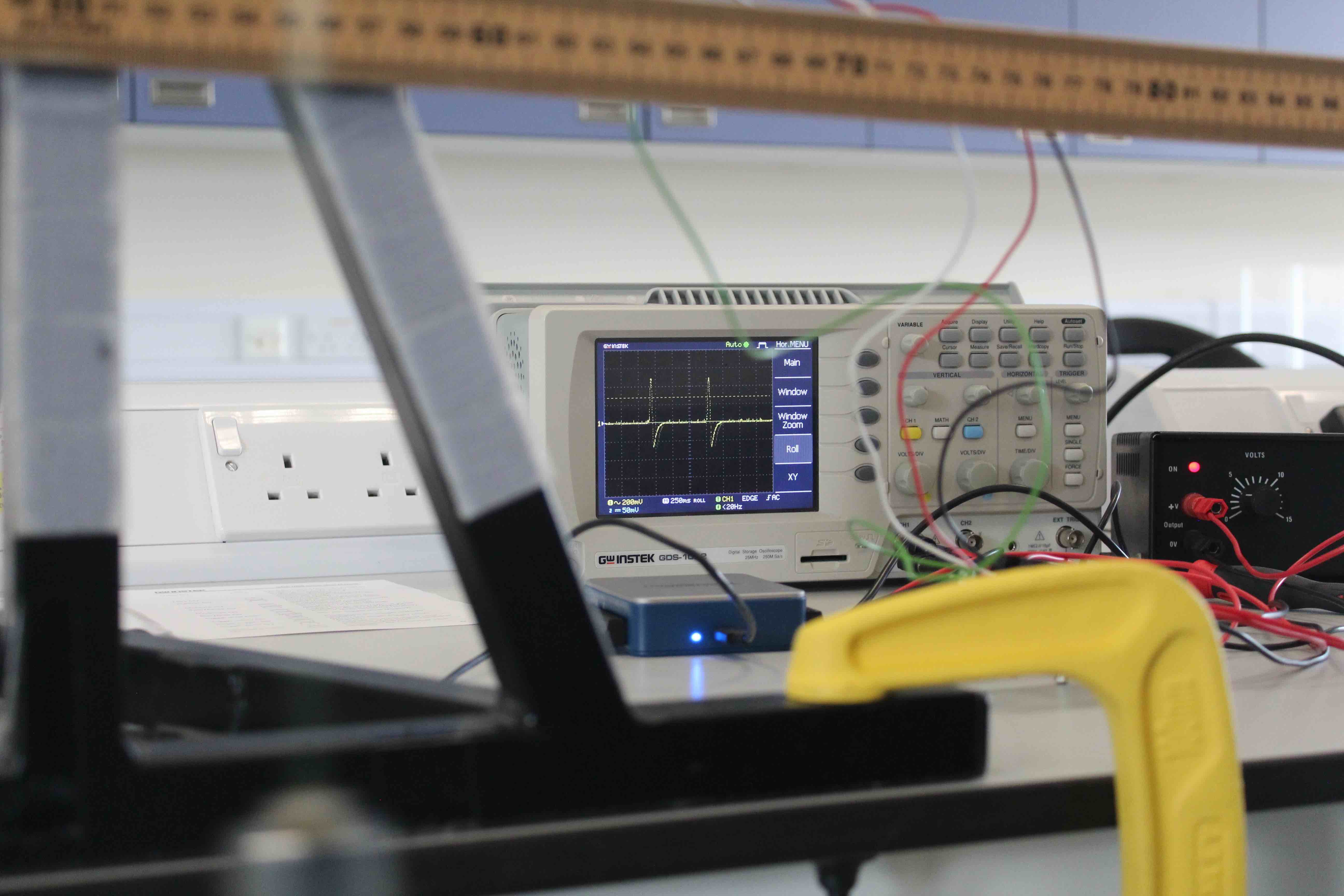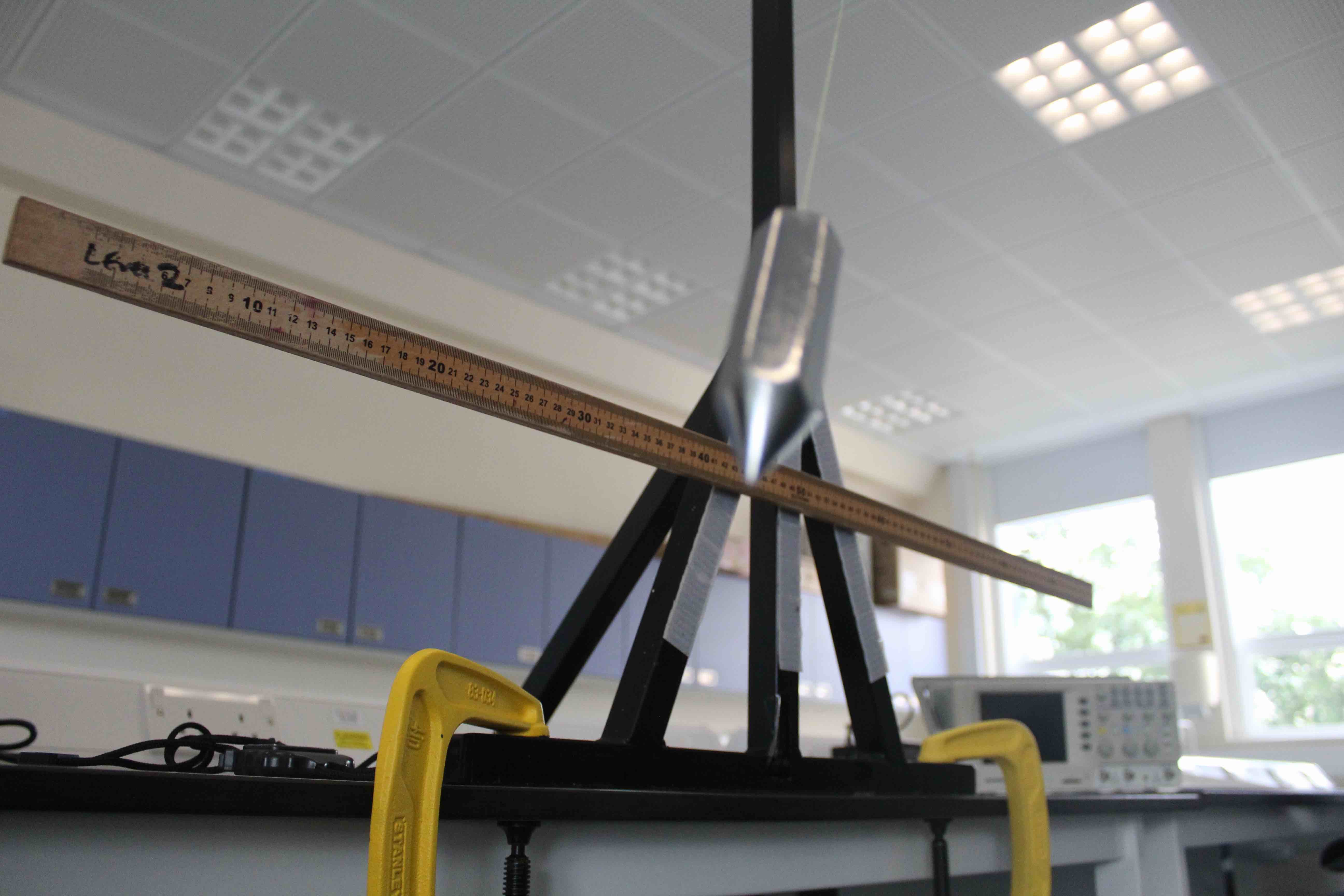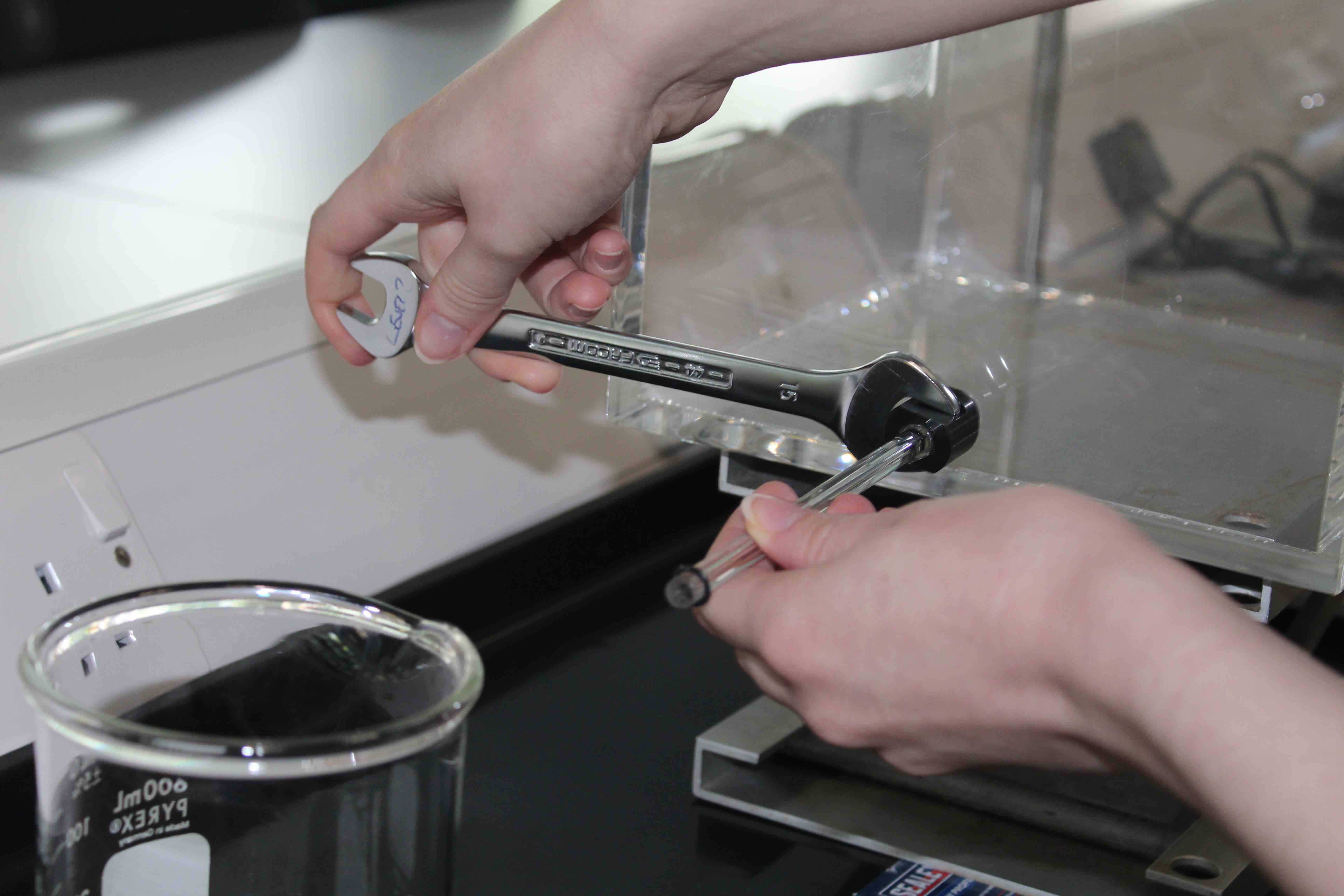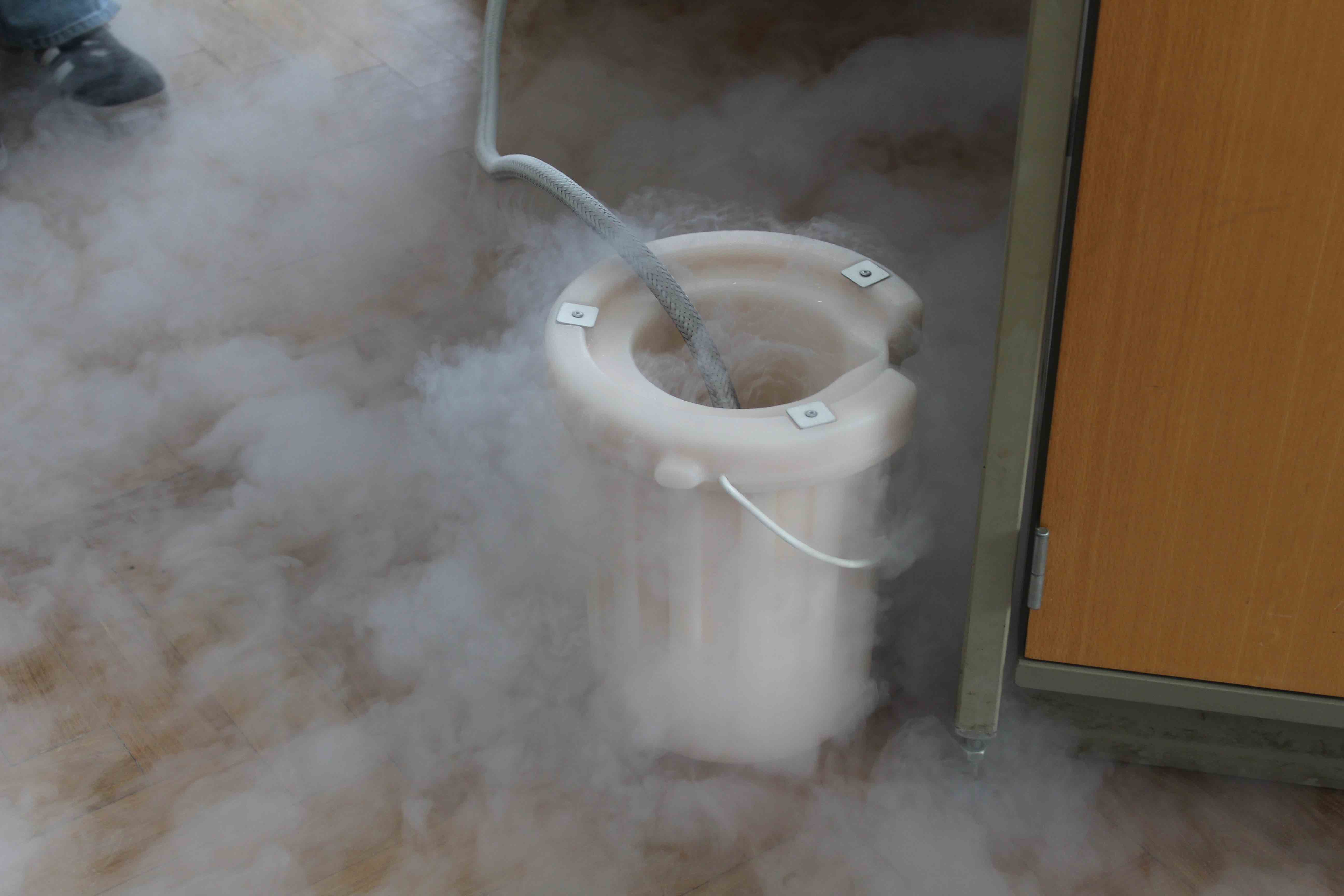Skills Laboratory sessions
The Skills Laboratory sessions take place in Michaelmas term in small experimental groups. Assessment for this section includes regular, short presentations about your work and a written report about one of the experiments.
Experiments
Analysis

Although becoming familiar with equipment is important, a physicist must also know how to analyse the data they have. It’s important to ask whether your model provides an appropriate fit for your data. For instance, are you trying to fit curved data to a straight line? If a model is appropriate, it’s then vital to find the best fitting parameters and their uncertainties. Chi-squared, χ2, analysis is a way to quantify how good a particular model is using a weighted least-squares fit. It’s a bit like LINEST that you have encounter before in Excel (see Excel Guide) but works for more than just straight lines and accounts for your measured error-bars.
The χ2 analysis laboratory takes place over two sessions. The first includes a review of simple statistics and introduction of the Chi-squared statistic to investigate how well various models represent the period of a pendulum. The second involves further investigation into the fitting parameters of a model to a data set and using Chi-squared to comment on its fit.
Current students can find more information on Learn Ultra.
Python Automation

A way to make life easier in laboratories is to automate! Python is a really useful tool to quickly collect, process, and model experimental data.
This session revisits the pendulum from the previous sessions with the addition of the Python programming skills you’ve learned in your degree thus far. You will link the Skills and Computing components of the module with some simple electrical circuits to find more efficient ways to collect and process the data.
Current students can find more information on Learn Ultra.
Viscosity of Water

Although the equipment is fairly simple, this investigation gives you the opportunity to use the more complex analysis that you have learnt earlier in the course. You will work in a team to design an experiment, based on Poiseuille’s method, to measure the viscosity of water. Consideration must be given to how to minimise the overall experimental errors in the laboratory time and which errors may dominate calculations.
You will then be assessed via a report in the style of a research paper, whereby you must write the report and complete data analysis individually.
Current students can find more information on Learn Ultra.
Cryogenics

Cryogenics deals with materials at very low temperatures. At temperatures close to absolute zero (-273 degrees Celsius), the materials exhibit special properties, such as losing all resistance to electricity, or superconductivity. The most common materials used in industry are liquefied gases—particularly nitrogen and helium.
In the final Skills session, you will learn about the safe dispensing of liquid nitrogen, apply calibrations to thermometry data, and gain further practice at data analysis. There are specific risks associated with handling of cryogenic liquids, so you will receive extensive instructions before entering the lab. Hence, you will be required to wear fully enclosed shoes and long trousers and long sleeve tops/a lab coat. More information on health and safety can be found here.
Current students can find more information on Learn Ultra.


/prod01/prodbucket01/media/durham-university/departments-/physics/teaching-labs/VT2A9034-1998X733.jpeg)